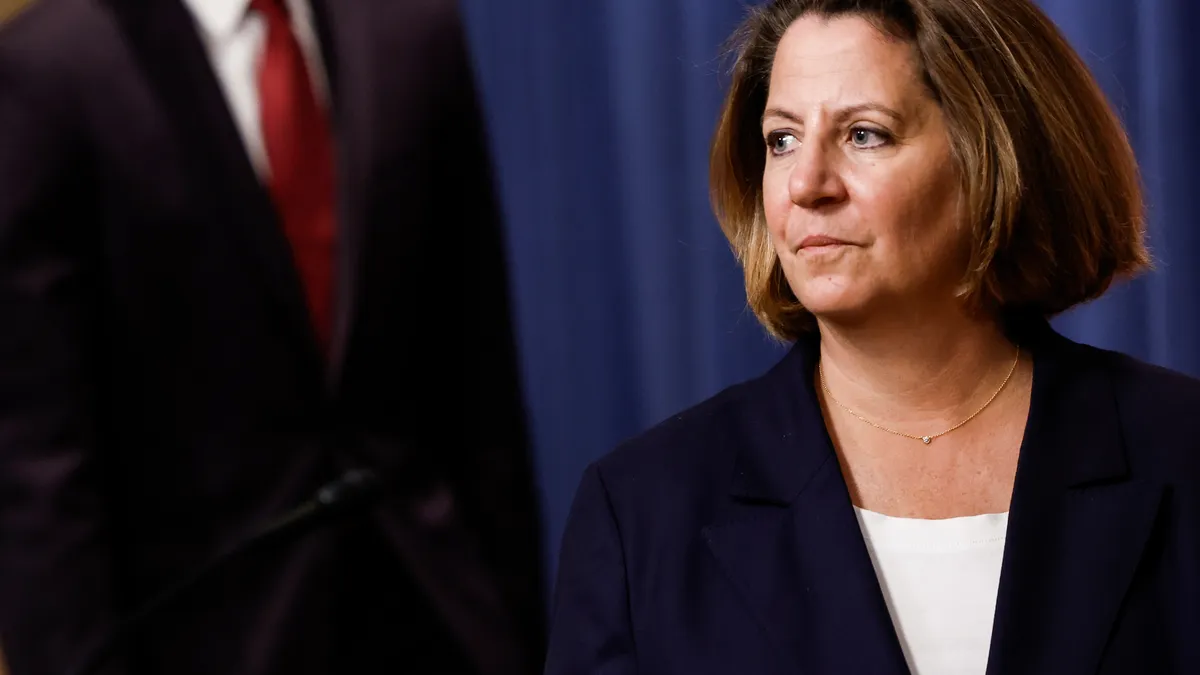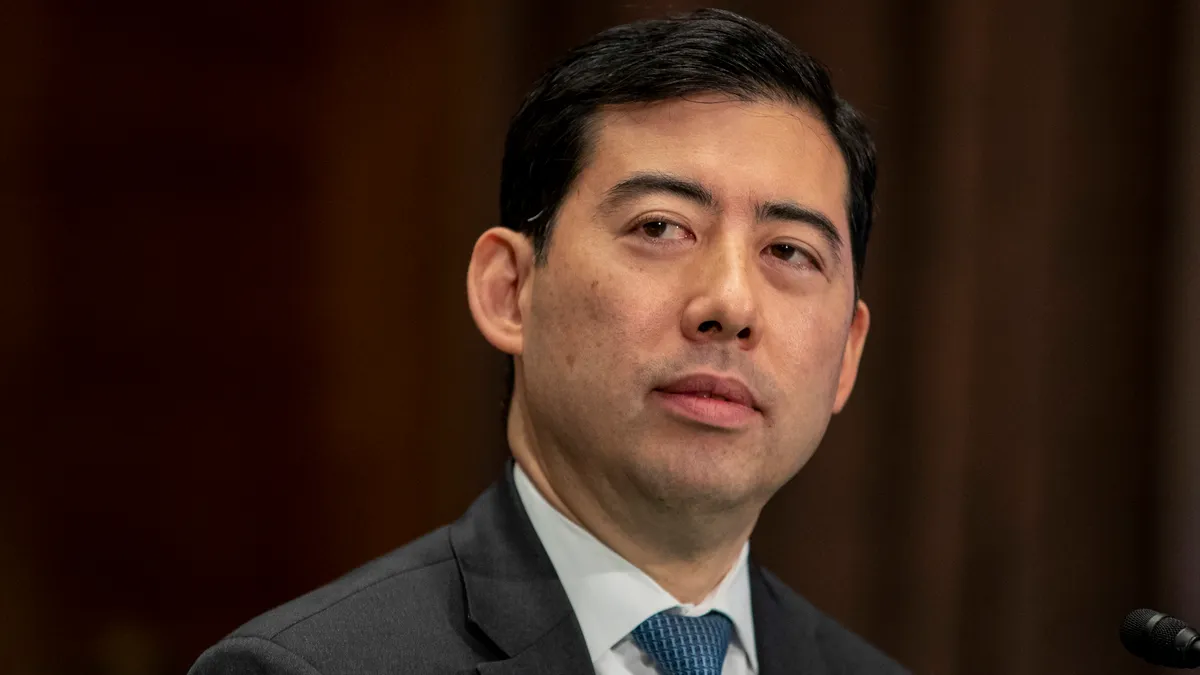The pilot program the Department of Justice announced last week to let whistleblowers share in money the agency recoups from companies involved in criminal misconduct is intended to fill the gap with other whistleblower programs. But there’s a reason the agency hasn’t offered these awards up until now, a former prosecutor with the agency says: there isn’t a clear way for prosecutors to maintain whistleblowers’ anonymity, a key reason why other programs that reward people who come forward have been so successful.
“There’s a reason you don’t really see whistleblowing in a criminal context,” Ephraim (“Fry”) Wernick, a partner with Vinson & Elkins, told Legal Dive. “You trigger obvious discovery obligations and I can see cases getting blown up for this very reason.”
Unlike the program the Securities and Exchange Commission has been operating since 2010, which involves civil cases and has paid out some $600 million over the years, the DOJ program is focused on criminal cases, where defense attorneys can leverage robust discovery rules to pressure DOJ into revealing whether a whistleblower is involved and, if so, who the person is.
For the civil cases under the SEC program, not only is the identity of the whistleblower kept confidential, but in many cases the agency negotiates a settlement with the company without ever disclosing that a whistleblower was involved.
In a criminal context, Wernick said, prosecutors have what are called Giglio obligations – a responsibility to disclose information that could undermine the credibility of a witness. With DOJ offering potentially millions of dollars in awards to someone who comes forward, that monetary incentive becomes something defense attorneys will demand to know about to weed out whistleblowers who are using the program to enrich themselves.
“When you’re dealing with somebody who stands to make millions of dollars … it’s significantly undermining the value of the case, or at least the value of the witness, if they stand to benefit in the way DOJ is suggesting,” Wernick said.
Prosecutors will be under the gun to validate anything a whistleblower tells them, because the case will have to stand on its own, separate from the information they’re paying for.
“You can imagine a jury saying, ‘Gosh, why should I believe this guy?’” he said. “It really is going to be incumbent upon the government to corroborate every single word if they’re going to be relying on the word of a whistleblower in a criminal case.”
Even while the case is still in an early stage and the two sides are negotiating a settlement, defense attorneys can press prosecutors to release information on the whistleblower before they agree to anything.
“You don’t have to wait until indictment,” Wernick said. “That information is going to be discoverable to attorneys representing companies at the settlement stage. That’s not the case with the SEC.”
Depending on the jurisdiction of the case, state rules can also require prosecutors to hand over information on the whistleblower to the defense.
“Many states’ professional rules of ethics require prosecutors to provide impeachment information, evidence that would tend to undermine a case,” he said.
What’s more, because the SEC has public companies covered, DOJ is likely to target awards in cases involving private companies. Executives of these companies have less incentive to settle, which could push more cases into the courts, where whistleblowers can face having to provide testimony and be subject to cross examination.
“To the extent companies contest their DOJ corporate case, it’s more likely to happen from a privately held company,” Wernick said. “It doesn’t have to worry about the consequences of an indictment to their share price.”
Validating the whistleblower
In her remarks introducing the pilot, DOJ Deputy Attorney General Lisa Monaco said the awards would go to people who are not personally involved in the misconduct and are first to provide information the agency doesn’t have.
For defense attorneys, it will be important to validate that the whistleblower is in fact not part of the problem, which will require knowing who the person is or at least how they came to know the information.
“If you’re on the defense side, you’re going to keep on saying, ‘No, this isn’t enough. I need to know who it is. The explanation of this person’s role, or this person’s level of information, is not enough,’” Wernick said. “Prosecutors will say the defense doesn’t need that much, and sometimes the judge may have to get involved to fix it. But that’s usually happening after a case is charged, but here we’re dealing with corporate cases, and they rarely go to court. They’re usually settled beforehand.”
DOJ is writing rules for the pilot inside a 90-day window. Addressing the anonymity issue is one of the challenges it’ll have to work through if the program is going to work as envisioned.
“If it’s not handled with extreme care, you could start seeing individual cases blow up for prosecutors and the government in very embarrassing ways,” Wernick said. “There is a very good reason why DOJ hasn’t done this before.”



















